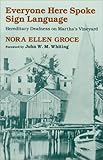|
Editorial Review Product Description
Every wine has a story, and Gerald Asher tells it best. Asher, wine editor of Gourmet magazine, has an unsurpassed knowledge of vineyards, wineries, and wines. Vineyard Tales gives an expert's advice on decanting, tasting and serving wine, plus evaluates wines from around the world, setting each wine in the context of a region's history and culture.Amazon.com Review
Raymond Chandler bristled at being called "one of the greatest mystery writers of all time"; he considered himself a good writer who just happened to write mysteries. Wine writing has its own system of pigeonholes--a grape ghetto, if you will--in which the reader is secondary and the tasting note is king. Happily, Vineyard Tales proves one thing: Gerald Asher is an excellent writer who just happens to write about wine--as well as the people and the land that shape it. In 29 essays, most of which have appeared in slightly altered form on the pages of Gourmet magazine, to which he contributes regularly as the wine editor, Asher demonstrates his gifts as researcher, historian, phrase turner, and storyteller. Like a master winemaker, Asher skillfully blends tannic opinion (anyone on the quixotic quest for the perfect food/wine pairing should find his piece "Wine and Food" the final word on the subject) with floral grace notes (his "Orvieto: Fair Lily of Umbria" is layered with romance worthy of subtitling on Bravo Network). He merges structure and backbone (he's the history teacher you wish you had, dropping tidbits like: in 1869, 42 percent of U.S. wine came from Missouri; in 18th century England, London merchants openly added Syrah to their Bordeaux--"Hermitaged" wines fetching a premium) with style and length on the finish (the punch line of "Napa Valley Cabernet Sauvignon" is pure O. Henry, while "Letter from Burgundy" containsobservations such as, "Difficult wines improve with the years about as often as difficult people do"). As with any case lot, the occasional corkiness wafts off Vineyard Tales: no essays are dated, so references to "recent" vintages confuse, while accounts of Asher barrel-tasting vintages of wines now long gone lend a musty air to otherwise fresh writing. And if he can't completely shake the wine writer's tendency to "bottle drop" (in Asher's case, an 1899 Haut-Brion), he never abandons his audience. As Asher writes in his introduction, "In every glass of wine, I have found, is a story. In these pages I will tell you some of my favorites." Lovers of wine--or good writing that just happens to be about it--won't be disappointed. --Tony Mason ... Read more Customer Reviews (5)  Superb wine writing
Superb wine writing
This book is a compilation of twenty-nine "Gourme"t articles. Asher writes about wine in Crete, France, Portugal, Italy, Spain, California, Oregon, Washington and Long Island. In each article, the wine is placed in the region's history and culture. The articles also cover a wide range of subjects, including matters of taste, pairing wine and food, old wine books in English, French wine drinking traditions, decanting, and Asher's personal memories of wines.
Asher writes in a clear, poetic style; this is certainly one of the most beautifully written books on wine in English.
Example: "A glass of good wine does not need to be picked apart or burdened with jargon. It will find its echo among old memories (and sometimes anchor a new one). Smell and taste, with a tug at emotions, always pulls the past into the present, the there and then into the here and now. Somewhere in that there and then are familiar faces, snatches of happiness, half-forgotten stories and glimpses of places now far away."
Robert C. Ross20072008
 A good collection for the very serious
A good collection for the very serious
This is not necessarily the best wine book of its kind, but its category is not as populated as it should be, so Gerald Asher's contribution is welcome. Not many treatments cover a diverse array of regions, aim to educate on wine rather than merely review it, have arguments to make, and remain unapologetic about the seriousness with which they approach the subject. Other such books may be written by more prolific tasters (Robert Parker) or are more comprehensive in scope (Frank Prial's), but none appear to rival the depth of Asher's knowledge.
Drawing on what must be an impressive library, chapters on Burgundy, Sauternes, and Château Haut-Brion give readers a sense of what these wines were like two hundred years ago with the lucidity of a tasting note scripted today. Other chapters are equally informative but less interesting, reflecting Asher's frustrating tendency to draft an essay so rich in information that it is almost scholarly. Many chapters are more valuable as a source of research (should one ever need it) than as a literary companion to a glass of wine on a lazy night. The unremarkable essay on Hermitage is written as though it were a university term paper -- presenting the history of the appellation, right down to citations to Plutarch and a tome on the history of wine published in 1824, but saying comparatively little about the wine and its virtues. Similarly, the chapter on Corbières takes readers on a whirlwind tour of the Visigoths' sacking of Rome, the Inquisition, and the court of the Sun-King, but if you want to learn more about the character of Corbières wine and whether it would please your palate, you must look elsewhere. What makes Asher's book worthwhile is its open-mindedness towards wine regions that do not generally receive gushing reviews or haughty fanfare. Asher has written the definitive piece on California's Edna Valley region, known for its crisp and flavorful Chardonnays, and he also reports from Long Island, Washington, and even Missouri. More chapters are about American wine than any other country's. But judging from Asher's passion for Barbaresco and Orvieto, even the author would be happier seeing Italy better represented.
 Remembrance of Things Past: tales from wine tasting
Remembrance of Things Past: tales from wine tasting
This book is a collection of wine tales. Each of them could stand by itself as a refreshing piece to read. The virtue is that the collection of tales approach wines from the way we remember wines: time, ambience, location and a bit of history of the place. The writer lets you know what he likes and why he does! It is a perspective useful when you are able to find some of the wines that are discussed and taste them. If you know that the overwhelming taste of OAK is not a sign of aging potential, this book is for you!
 Outstanding and informative for neophytes and professionals
Outstanding and informative for neophytes and professionals
Gerald Asher's book is approachable and a joy to read, yet reveals a glimpse of the scholarly depth of his knowledge of food and wine.It is not full of vintage charts, wine reviews, buying suggestions or othermundane (and otherwise ubiquitous) information; rather, it is a charmingcollection of experiences and history, of wine regions and their principalcharacters and vineyards.This book is a wonderful complement to anyone'sfood and wine book library - no matter how large or small.
Fulldisclosure: Gerald is a friend, and I can assure you that the previousreviewer's understanding that he is not stuffy or pretentious is absolutelyaccurate, and this fact comes out in the most natural way in the book.
 A wine lover's treasure chest of short stories.
A wine lover's treasure chest of short stories.
I was prepared to find a dull book.So many wine books are that way.This is an entertaining collection of short stories about making wine, eating food, walking in the vineyards all over the world.It is a history of wine without being boring at all.I started reading it randomly and found that I forgot I read a particular story a few weeks ago because Asher tells such a good tale
... Read more
|
![]() very pleased
very pleased![]() Review by Mark F. Armstrong, Filmmaker
Review by Mark F. Armstrong, Filmmaker![]() A great primer!Worth the money!
A great primer!Worth the money!![]() A Must-Have For All Amateur Directors!!!
A Must-Have For All Amateur Directors!!!

















